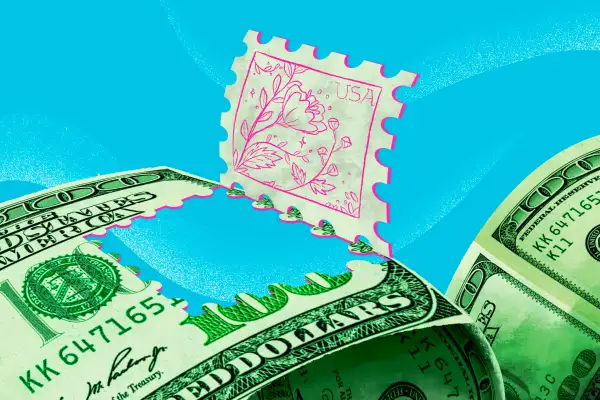USPS to Raise Stamp Prices — Again — This Summer

The cost of stamps is about to go up — again.
The U.S. Postal Service proposed a rate hike for its first-class Forever stamp in a notice filed with the Postal Regulatory Commission last week. The move, pending approval, would raise the price of Forever stamps from 73 cents to 78 cents — approximately a 6.8% increase — on July 13.
The USPS has raised prices on its Forever stamp 19 times since 2000 but insisted in a news release that they're still “among the most affordable in the world.” The latest price increase proposal would be the first to go into effect since July 2024, when the Forever stamp rose from 68 cents to 73 cents.
Taking a step back from tradition, stamp prices held steady in January after the agency credited earlier price hikes for boosting revenue and pinned hopes on cooling inflation to rein in costs. However, in the release, the Postal Service said that price increases are necessary to achieve “financial stability” and stay on track with its 10-year Delivering for America plan.
Assuming regulators approve the proposal, the upcoming changes would reflect just one of five planned price hikes slated through 2027.
Stamp prices on the rise (among other things)
Stamps aren’t the only thing facing a price increase at the USPS this year. Other proposed increases for postage include:
- Postage for 1-ounce metered letters: 69 cents to 74 cents
- Postage for domestic postcards: 56 cents to 62 cents
- Postage for international postcards: $1.65 to $1.70
- Postage for 1-ounce international letters: $1.64 to $1.70
- Additional-ounce price for letters: 28 cents to 29 cents
But guess what? There’s one price reduction of 12% for postal insurance. Small wins are still wins.
What's next for the USPS?
The price proposal announcement comes at a particularly uncertain time for the Postal Service. In November, the agency reported a net loss of $9.5 billion for its 2024 fiscal year, up from a $6.5 billion net loss the year prior.
Former U.S. Postmaster General Louis DeJoy resigned in March as President Donald Trump and Elon Musk, the head of the Department of Government Efficiency, suggested that the agency could be privatized (a move that has raised many questions surrounding legality). The USPS has functioned as an independent government organization since 1971.
More from Money:
Why Buying a Bunch of Stamps Won't Save the USPS
Trump's Tariffs Could Increase Gas Prices Soon
'No Place to Hide': Where and When Trump's Tariffs Will Hit Your Wallet





